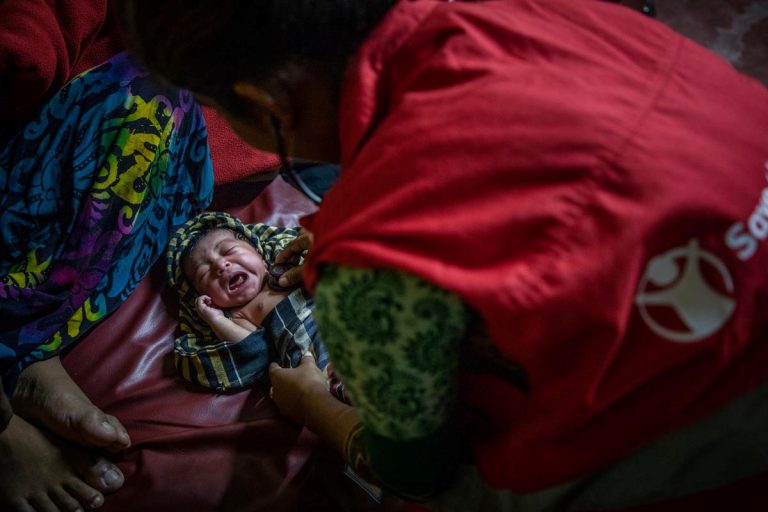The day of birth is the riskiest for women and their babies, with nearly half of maternal and newborn deaths and stillbirths taking place during this period. Many of these deaths are preventable, even in humanitarian settings, where nearly half of these deaths occur.
Participants at the Women Deliver conference, held last month in Canada, saw the launch of the Roadmap to Accelerate Progress for Every Newborn in Humanitarian Settings 2020-2025. The development of this roadmap and its related Declaration commit implementing partners, donors, researchers, and policymakers to prioritizing interventions, research needs, commodities, and programming that will improve care for the most vulnerable: mothers and newborns in humanitarian and fragile settings.
The Roadmap calls for action to bridge the care gap, emphasizing the need to engage stakeholders from across humanitarian and development sectors to ensure newborns survive and thrive even in the most difficult circumstances. This includes having a common vision, strategy, and commitment to invest in newborn interventions in populations affected by acute and protracted conflict and disasters. Of the ten objectives included in the Roadmap, priority 3 explicitly highlights the importance of ensuring access to care for displaced, refugee, and migrant women and their newborns.
The number of people fleeing war, persecution and conflict exceeded 70 million in 2018—the highest level seen in almost 70 years.
Almost 70.8 million people are forcibly displaced—double the level of 20 years ago—and newborns are particularly vulnerable. On this World Refugee Day, we affirm our commitment to ensure that all women and babies have access to quality health care, and that all newborns survive even in the most remote and difficult of circumstances.
In celebration of World Refugee Day, the below photographs and their accompanying captions tell the story of Rohingya mothers and newborns who received life-saving care. According to UNHCR, the Rohingya refugee crisis, one of the fastest growing crises in the world, contributes to the highest number of refugees ever seen. Eighty percent of the Rohingya refugees reaching Bangladesh are women and children, including newborns. Save the Children estimates that 3 in 4 Rohingya babies are born in unsanitary conditions.







